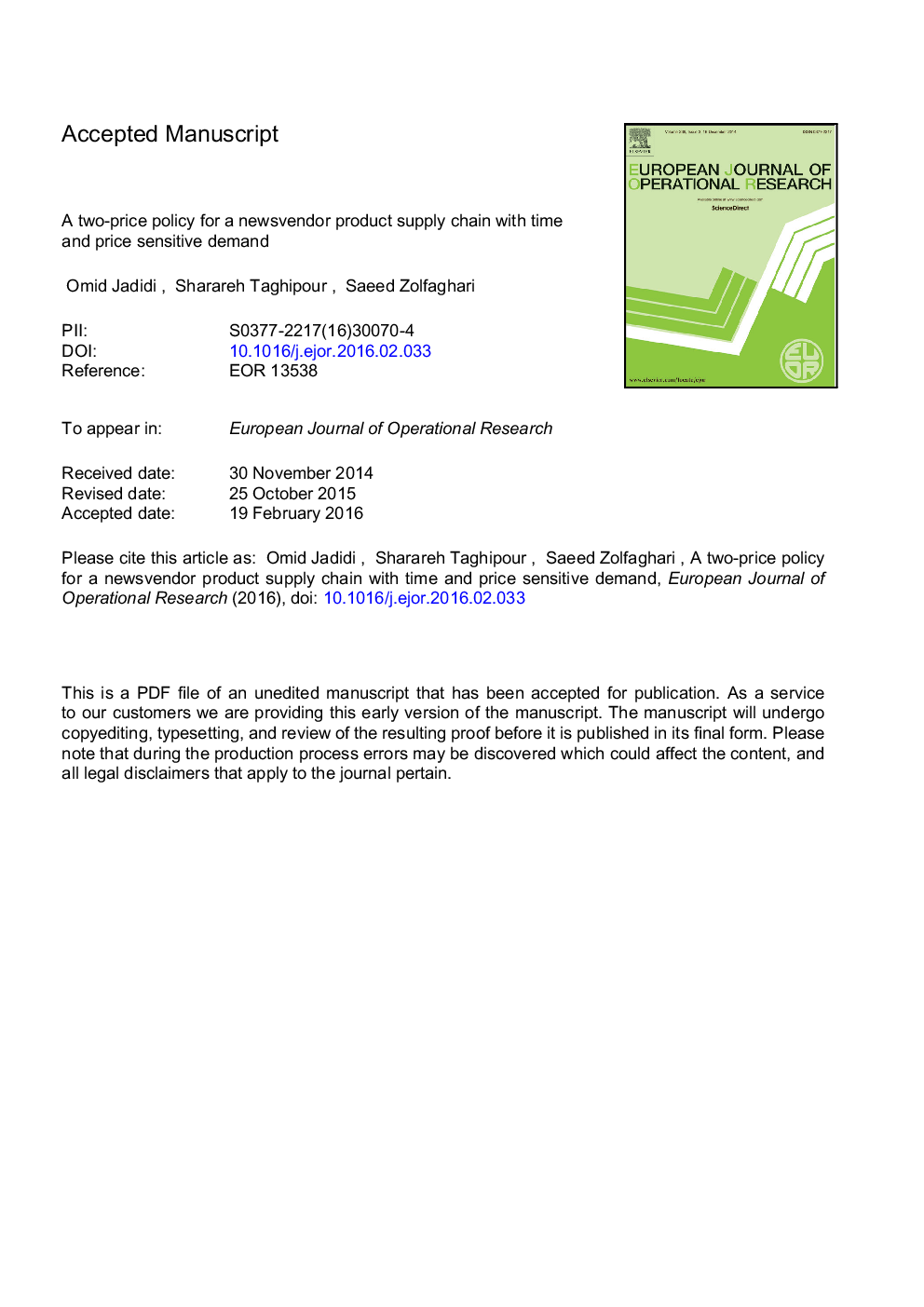| Article ID | Journal | Published Year | Pages | File Type |
|---|---|---|---|---|
| 6895594 | European Journal of Operational Research | 2016 | 33 Pages |
Abstract
In technology-related industries, such as smartphones manufacturing, two phenomena can be observed for the products: the first is the obsolescence of an existing product, usually due to the appearance of a new product which decreases the attractiveness of the existing one; the second is the stochastic nature of the market demand and its price sensitivity. These two imply that the demand decreases over a product's lifecycle, and thus, the manufacturer and/or retailer may need to decline the retail price of the product during its lifecycle. In this paper, we assume that a dominant manufacturer wholesales a technological product to a retailer who has single or two buying opportunities. For either single- or two-buying-opportunity setting, we consider two models: (1) the retailer decreases the retail price at the product's midlife with no compensation from the manufacturer; (2) the manufacturer provides a rebate to the retailer for the retail price decline at the midlife. For the two-buying-opportunity setting, the rebate is that the manufacturer decreases the wholesale price at the midlife. The variables include the manufacturer's wholesale price and rebate, the retailer's order quantities and retail prices. We also compare the performance of the proposed models to the wholesale-price-only and the buyback policies.
Related Topics
Physical Sciences and Engineering
Computer Science
Computer Science (General)
Authors
Omid Jadidi, Sharareh Taghipour, Saeed Zolfaghari,
